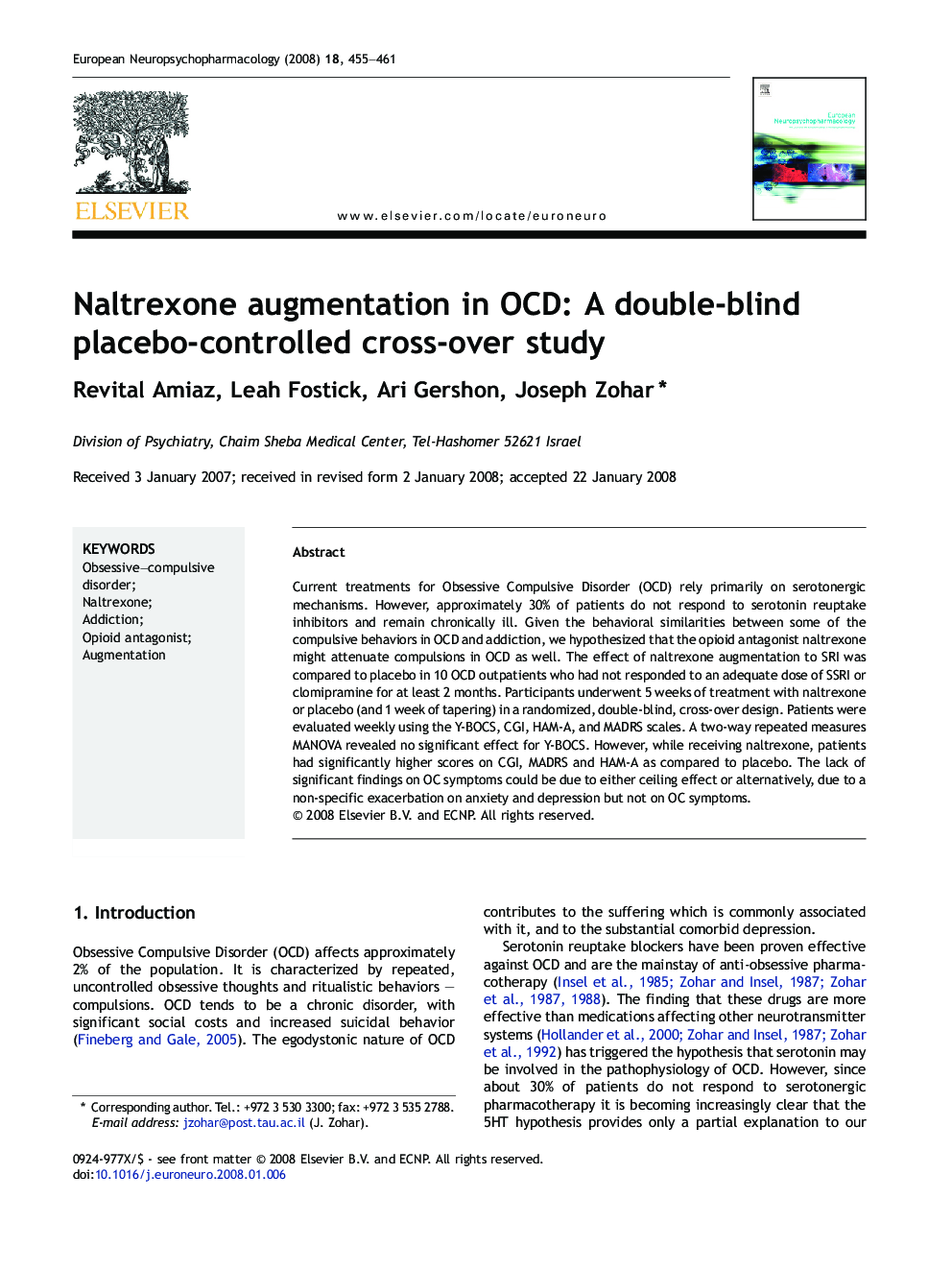| کد مقاله | کد نشریه | سال انتشار | مقاله انگلیسی | نسخه تمام متن |
|---|---|---|---|---|
| 319912 | 539618 | 2008 | 7 صفحه PDF | دانلود رایگان |

Current treatments for Obsessive Compulsive Disorder (OCD) rely primarily on serotonergic mechanisms. However, approximately 30% of patients do not respond to serotonin reuptake inhibitors and remain chronically ill. Given the behavioral similarities between some of the compulsive behaviors in OCD and addiction, we hypothesized that the opioid antagonist naltrexone might attenuate compulsions in OCD as well. The effect of naltrexone augmentation to SRI was compared to placebo in 10 OCD outpatients who had not responded to an adequate dose of SSRI or clomipramine for at least 2 months. Participants underwent 5 weeks of treatment with naltrexone or placebo (and 1 week of tapering) in a randomized, double-blind, cross-over design. Patients were evaluated weekly using the Y-BOCS, CGI, HAM-A, and MADRS scales. A two-way repeated measures MANOVA revealed no significant effect for Y-BOCS. However, while receiving naltrexone, patients had significantly higher scores on CGI, MADRS and HAM-A as compared to placebo. The lack of significant findings on OC symptoms could be due to either ceiling effect or alternatively, due to a non-specific exacerbation on anxiety and depression but not on OC symptoms.
Journal: European Neuropsychopharmacology - Volume 18, Issue 6, June 2008, Pages 455–461